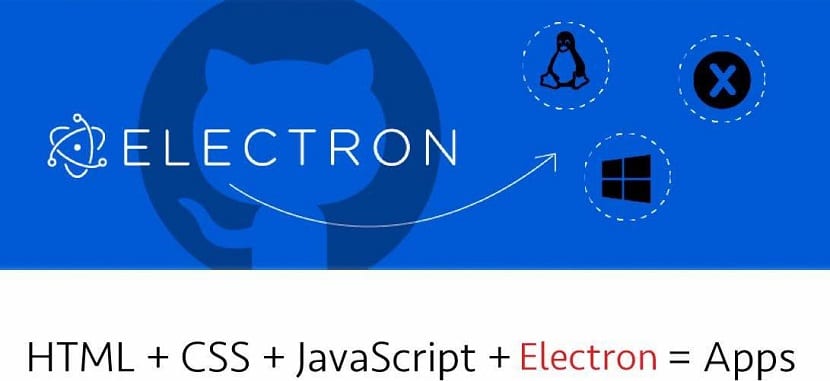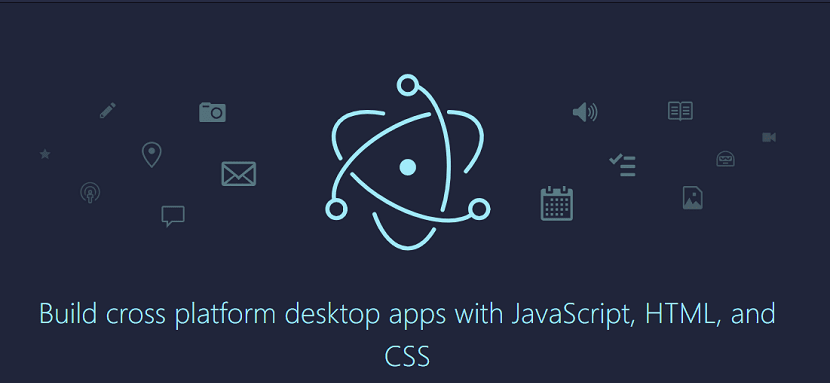
The Electron platform developers have made the announcement that the platform has stopped supporting 32-bit Linux systems and they have stopped building assemblies for them. The announcement does not specify whether the decision affects only the x86 architecture or extends to support for ARMv7 systems (indicated by "32-bit Linux").
32-bit Linux support will be discontinued as of version 5.0 (According to the official press release on version 4.0, but this is a typo, as full support for 32-bit Linux was provided in December, as in today's update 4.0.7).
What is electron?
For those who do not know Electron we can tell you that this is a platform that allows you to create any graphical application using browser technologies, whose logic is defined in JavaScript, HTML and CSS and the functionality can be extended through the companion system.
Developers have access to Node.js modules, as well as an advanced API to generate native dialogs, integrate applications, create context menus, integrate with the system to display notifications, manipulate windows, and interact with Chromium subsystems.
Unlike web-based applications, Electron-based programs are delivered as separate executable files that are not linked to the browser.
In this case, the developer does not have to worry about porting the application for different platforms, Electron will provide the ability to compile for all Chromium compatible systems.
Electron also provides tools to organize automatic delivery and installation of updates (updates can be delivered from a separate server and directly from GitHub).

From the programs created on the basis of the Electron platform, we can mention the Atom editor, the email client nylas, the tools to work with GitKraken, the Wagon SQL query visualization and analysis system, the WordPress Desktop blogging system, the client WebTorrent Desktop BitTorrent.
And also the official clients of services like Skype, Signal, Slack, Basecamp, Twitch, Ghost, Wire, Wrike, Visual Studio Code, and Discord.
A total of 730 applications are submitted in the Electron software catalog.
32 bit is gradually forgotten
The latest update, for which 32-bit versions of Linux will be formed, will be version 4.1 (the press release states that 3.1).
Developers of applications based on the Electron platform will have to limit themselves to 64-bit builds for Linux or stay on version 4.1 (indicated 3.1), which will remain until the formation of the Electron branch 7.0 (indicated 6.0).
Users of 32-bit Electron applications are advised to switch to 64-bit systems.
Electron will discontinue support for 32-bit Linux starting with Electron v4.0. The latest version of Electron that supports 32-bit based installations of Linux is Electron v3.1, which will receive support releases until Electron v6 is released. Support for 64-bit based Linux will continue unchanged.
Most computers manufactured in the 1990s and early 2000s were made with CPUs that were based on the 32-bit architecture, while most computers created later were based on the older 64-bit architecture. new and more powerful.
This decision taken by Electron developers is based on the fact that currently the demand for 32-bit architecture is not so much like others besides that they already consider it an "old" technology.
And on the other hand that in addition already many important projects have gone without dedicating time and efforts in the development for this architecture.
As a result, support has been declining: Google stopped releasing Chrome for 32-bit Linux in March 2016, Canonical stopped providing 32-bit desktop images in 2017, and dropped 32-bit support altogether with Ubuntu 18.10. Arch Linux.
Given this, we see that another important open source project has joined this initiative to abandon the development of 32-bit architecture.
And it is also worth remembering what the Ubuntu Mate developers said in which really "the market for this architecture is no longer used, given that the users who choose to download the 32-bit image are users who install it on computers with 64-bit processors."
Source: electronjs blog